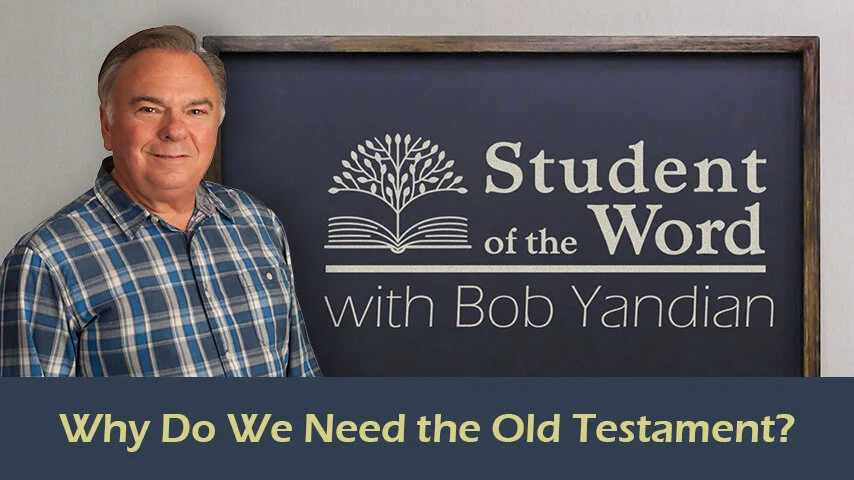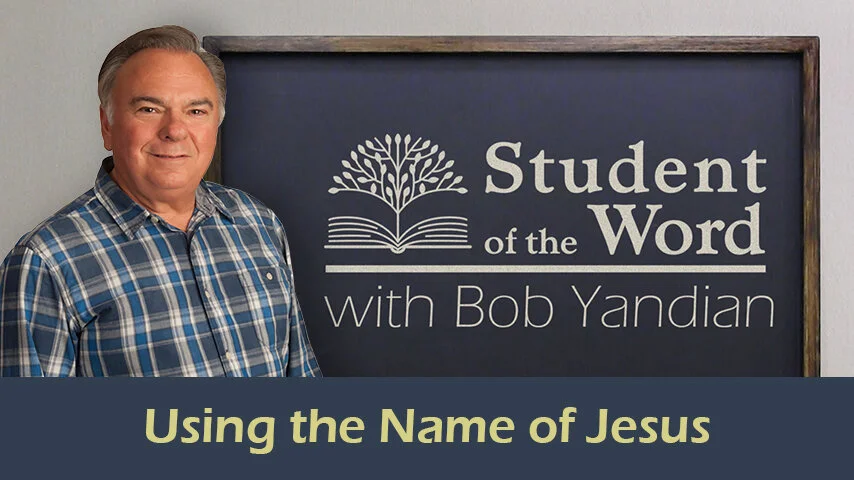Whatever Happened to the Old Testament?
“It happened, when Jehudi (the prophet) had read three or four columns, that the king cut it with the scribe’s knife and cast it into the fire that was on the hearth, until all the scroll was consumed in the fire that was on the hearth.” Jeremiah 36:23
Misuse of Scripture Today
Have you ever heard a minister say, “that’s the Old Testament. It has been fulfilled and replaced with the New Testament. So, the Old Testament is not for us today?
Parts of the Old Testament are fulfilled but never replaced or removed.
a. Many things have changed from the Old Testament to the New Testament.
Guidance: Visit a prophet, priest, Gideon’s fleece.
David prayed, “ take not your Holy Spirit from me.”
Old Testament versus New Testament results of salvation; New birth, Holy Spirit lives in us, family of God, Church, priesthood.
Sacrifices fulfilled. We do not bring heifers today.
It appears God has changed from Old Testament to New Testament.
a. Yet, God says in the Old Testament and New Testament He cannot change.
“I am the Lord, I do not change” (Malachi 3:6).
Jesus Christ, the same yesterday, today, and forever” (Hebrews 13:8).
b. Goodness and severity are parts of God’s nature.
c. The Old Testament emphasizes God’s severity more. The New Testament emphasizes grace more.
d. Yet, God’s mercy is seen in Psalms and Proverbs.
Mercy is shown in Abraham’s, Joseph’s, Moses’, and David’s life.
e. Mankind has yet to see God’s full wrath to come.
Because the New Testament is better does not mean the Old Testament is bad. The Old Testament is good - the Law was holy, just, and good.
b. Dividing the Word to exclude certain passages from our daily walk is reckless and damaging.
It is produced evil results in the lives of believers.
It has produced an arrogant, self-superiority in many teachers who do not want to hear from the word that they are wrong.
Eventually, little by little, these teachers will dismiss all the Word as the king with the scroll. No one is to add or take away from the words of the book of this prophecy (Revelation 22:18, 19).
No part of the Bible is meant to be excluded.
a. Not all scripture is written to us.
Hebrews 1:1,2 - “God, who at various times and in various ways spoke in time past to the fathers by the prophets, has in these last days spoken to us by His Son, whom He has appointed heir of all things, through whom also He made the worlds.”
b. All scripture is written for us.
Romans 15:4 “For whatever things were written before (Old Testament) were written for our learning, that we through the patience and comfort of the Scriptures (Old Testament) might have hope.”
2 Timothy 3:16, 17 “All Scripture is given by inspiration of God, and is profitable for doctrine, for reproof, for correction, for instruction in righteousness, that the man of God may be complete, thoroughly equipped for every good work.”
Hebrews 3:7,8 - “As the Holy Spirit says (Psalms 95:7,8): ‘Today, if you will hear His voice, do not harden your hearts as in the rebellion (Exodus 17, Numbers 20), in the day of trial in the wilderness.”
Written by David to his generation about a long past generation.
Then written by Paul to his generation, quoting David about the Exodus generation.
Read by us to apply to our lives today.
The Old Testament should be used for examples.
1 Corinthians 10:6 “Now these things became our examples (New Testament), to the intent that we should not lust after evil things as they (Old Testament) also lusted.”
Two False Teachings About the Old Testament Today
Since the Old Testament is another name for the Law we are not under it.
a. The law has been fulfilled, from Moses to the crucifixion, and does not apply today.
b. It can be removed because law and grace cannot coexist.
The method of salvation and spirituality in the Old Testament was works.
There is another method of salvation and spirituality in the New Testament - faith.
But, Where’s the Proof?
Neither God Himself, Jesus Christ, or any writer of scripture has given us a single word verifying either of these two points in the Old or New Testaments.
Jesus said to the Father, “sanctify them by Your truth. Your word is (the whole, not a part) truth” (John 17:17).
The problem comes when we view the Old Testament and New Testament as competing with each other.
a. God gave both. They do not and cannot compete.
b. They were given to compliment, complete each other.
c. The Law was not removed but completed by grace.
d. Jesus said, “I have not come to destroy the Law or the Prophets, but to fulfill it (Matthew 5:17).
Summer fulfills Spring, it does not destroy it.
Manhood fulfills childhood, it does not destroy it.
The New Testament fulfills the Old Testament, it does not destroy it.
Grace fulfills the Law, it does not destroy it.
Believers today, walking in the Spirit and obeying the Word, fulfill the Law.
God’s Eternal Plan of Salvation and Spirituality
The difference between Law and grace.
a. Under the Law, man chooses to handle his sin.
b. Under grace, man lets God handle his sin as a sinner and as a believer.
Faith always has been and always will be God’s means of salvation and the means of pleasing God in the daily walk of the believer.
a. Abel, Noah, Abraham, Isaac, Jacob, and all 12 sons found grace in God’s sight and were saved by faith.
b. Abraham believed in the Lord and it was accounted to him for righteousness (Genesis 15:6, Romans 4:3).
c. Moses, Joshua, David, and the prophets too, found grace in God’s sight and were justified before God by faith. All lived during the Law (Romans 4:6, 7).
d. If keeping the Law was God’s plan of salvation in the Old Testament then no one was ever saved.
“By the deeds of the Law no flesh (Old and New Testament) shall be justified in His sight” (Romans 3:20, 28).
“It is not possible that the blood of bulls and goats could take away sins” (Hebrews 10:4).
Peter said, “why do you test God by putting a yoke on the disciples’ neck which neither our fathers (Old Testament) nor we (New Testament) were able to bear?” (Acts 15:10)
Law was not given to Gentiles. How were they saved?
If the Law was God’s plan for salvation, then why did He only give it to one nation?
The message Israel took to the world was faith, the gospel. The Law was their Bible.
a. The Church stands in Israel’s place as custodians of the gospel and the word, the Great Commission.
b. Jonah took the gospel to Ninevah and all people, from the king to the peasants, repented to the Lord after Jonah preached (Jonah 3:5, Matthew 12:41).
The Means of Salvation Has Always Been the Gospel Given by Grace and Received by Faith
From Genesis to Revelation there is one glorious gospel of faith in the Lord.
a. In the redemption chapter, Isaiah began his message with “who has believed our report?” (Isaiah 53:1).
b. Isaiah’s report is called the gospel in Romans 10:16.
c. “Indeed the gospel was preached to us (New Testament) as well as them (Old Testament)” (Hebrews 4:2).
d. “the Scripture, foreseeing that God would justify the Gentiles by faith, preached the gospel to Abraham (Galatians 3:8).
Gospel means “good news.” Isaiah called the message just that (Isaiah 52:7).
After Salvation, God’s Plan for the Believer to Pleas Him Has Always Been By Faith
“The just shall live by faith” is quoted Old Testament and New Testament.
The Old Testament heroes lived by faith.
a. The Old Testament heroes lived by faith (Hebrews 11:6).
b. The Heroes of faith mentioned lived before and during the Law.
c. Faith and faith only please God.
Can Grace and Law Coexist?
The answer is emphatically “YES.”
a. The Law still exists.
b. It was not destroyed.
The Law can coexist with grace.
Grace has never been an excuse for sin - lawlessness.
Grace teaches God’s love. The Law teaches His righteousness.
The Holy Spirit continues to fulfill the Law in our lives as it did in the life of Jesus.
Even before there was sin in the Garden there was law.
a. There were millions of “yes” trees but one “no” tree.
b. God said of the tree of the knowledge of good and evil, “thou shall not eat of it.”
c. This is the same wording found in the law concerning lying, swearing, committing adultery, and stealing, “thou shall not.”
Grace and Law were both given by God and cannot be wrong, evil, or destroyed.
The Law was given to be fulfilled.
a. It was first fulfilled by Jesus’ life, death, and resurrection.
b. Jesus came to fulfill the Law, not destroy it, so we can also fulfill the law.
c. It is then fulfilled in the believer’s life who lives by the Word and walks in the Holy Spirit.
“Walk in the Spirit and do not fulfill the lusts of the flesh” (Galatians 5:16).
“Do we make void the law through faith? God forbid: we establish the Law” (Romans 3:31).
What is the Main Distinction Between the Old Testament and the New Testament?
God’s grace - which was shown to one nation, has now been given to all nations. There is no discord, but perfect accord and harmony between the Old and New Testaments.
The Law Was Never Given to Save
“For they (Old Testament Israel) being ignorant of God’s righteousness, and seeking to establish their own righteousness, have not submitted to the righteousness (grace through faith) of God. For Christ is the end of the law for righteousness to everyone who believes.
For Moses writes about the righteousness which is of the law, “The man who does those things shall live by them.” But the righteousness of faith speaks in this way, “Do not say in your heart, ‘Who will ascend into heaven?’ ” (that is, to bring Christ down from above) or, “ ‘Who will descend into the abyss?’ ” (that is, to bring Christ up from the dead). But what does it say? “The word is near you, in your mouth and in your heart” (that is, the word of faith which we (New Testament writers) preach):
vs. 5 Moses wrote what salvation was not - the law.
vs. 6-8 Moses wrote what salvation was - grace.
vs. 9 Paul uses Moses to teach salvation - has never changed.
that if you confess with your mouth the Lord Jesus and believe in your heart that God has raised Him from the dead, you will be saved. For with the heart one believes unto righteousness, and with the mouth, confession is made unto salvation. For the Scripture says, “Whoever believes on Him will not be put to shame.” For there is no distinction between Jew and Greek, for the same Lord over all is rich to all who call upon Him. For “whoever calls on the name of the Lord shall be saved.”
vs. 13 Paul uses Joe to show Old Testament salvation by faith.
vs 14 Paul uses Isaiah to teach Israel’s Old Testament mission.
vs. 16 Isaiah’s Old Testament report for salvation was the gospel.
A Daily Faith Operates The Same As Faith For Salvation
Israel crossed the Red Sea by faith.
They failed to mix faith and promises for the next 40 years.
“Now the next day, when they had come out from Bethany, He was hungry. 13 And seeing from afar a fig tree having leaves, He went to see if perhaps He would find something on it. When He came to it, He found nothing but leaves, for it was not the season for figs. 14 In response Jesus said to it, “Let no one eat fruit from you ever again.”
And His disciples heard it.
Now in the morning, as they passed by, they saw the fig tree dried up from the roots. 21 And Peter, remembering, said to Him, “Rabbi, look! The fig tree which You cursed has withered away.”
22 So Jesus answered and said to them, “Have faith in God. 23 For assuredly, I say to you, whoever says to this mountain, ‘Be removed and be cast into the sea,’ and does not doubt in his heart, but believes that those things he says will be done, he will have whatever he says. 24 Therefore I say to you, whatever things you ask when you pray, believe that you receive them, and you will have them.” Mark 11:12-14, 20-24
Faith puts its trust in God - not man.
a. Faith is not of the natural world, but the spiritual.
b. God is no natural, He is a spirit, supernatural.
c. The spiritual world can change the natural. But the natural world cannot change the spiritual.
Faith knows no big or small - fig tree or mountain.
Faith looks at the finished work of God instead of the existing work to be done in the natural.
Faith is an Attribute of Every Christian
“God has dealt to each one a measure of faith.” Romans 12:3
“Who have obtained like precious faith.” 2 Peter 1:1
“Jesus answered and said to him, “Most assuredly, I say to you, unless one is born again, he cannot see the kingdom of God.”
Nicodemus said to Him, “How can a man be born when he is old? Can he enter a second time into his mother’s womb and be born?”
Jesus answered, “Most assuredly, I say to you unless one is born of water and the Spirit, he cannot enter the kingdom of God.. That which is born of the flesh is flesh, and that which is born of the Spirit is spirit.” John 3:3-6
Everything produces after its own kind - like produces like (corn, wheat, beans, love, money, flesh, Spirit).
People produce people - God produces your spirit.
Humans produce bodies. God produces your spirit.
Everything has its own attributes:
a. Cats - whiskers, dogs, dogs - tails, elephants - trunks.
How Faith Works
“For assuredly, I say to you, whoever says to this mountain, ‘Be removed and be cast into the sea,’ and does not doubt in his heart, but believes that those things he says will be done, he will have whatever he says. 24 Therefore I say to you, whatever things you ask when you pray, believe that you receive them, and you will have them.” Mark 11:23, 24
Faith is released by the words of your mouth, “the word (rhema) of faith which we preach” (Romans 10:8).
You say it before the mountain moves.
All creatures have a language.
a. Cats meow.
b. Dogs bark.
c. Babies cry
Your spirit man has a voice. It is the voice of God.
a. The language of the inner man “calls those things which be not as though they were.”
b. God speaks something before it happens (Romans 4:17).
Faith’s language.
a. Doctors, lawyers, computer geeks - all have their own languages.
b. Faith people speak faith’s language.
Giving Voice to Our Faith Should Be Daily
“What then shall we say to these things? If God is for us, who can be against us?” Romans 8:31













